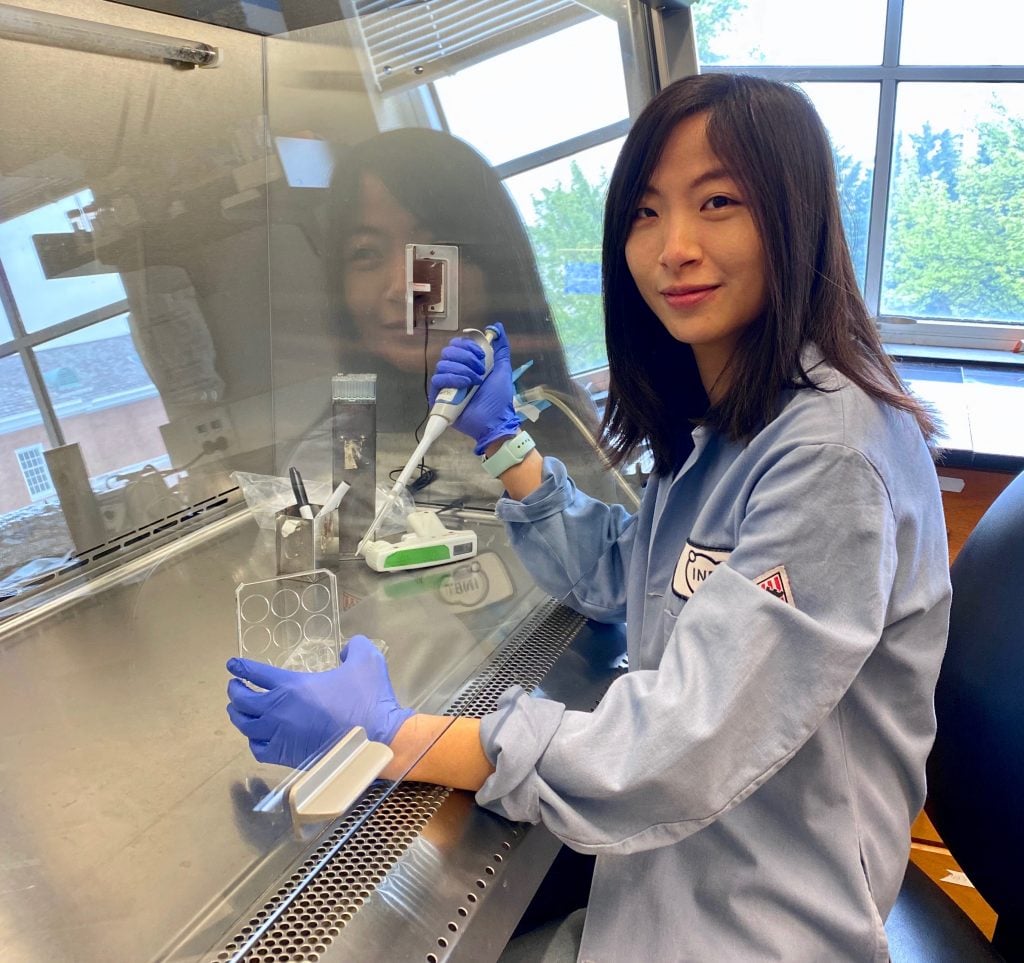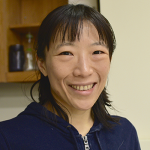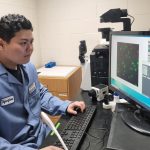YingYu Lin Awarded Taiwan-Whiting School of Engineering Fellowship

YingYu Lin, first year PhD student at the Institute for NanoBioTechnology (INBT) and in the Department of Chemical and Biomolecular Engineering, was awarded a Taiwan-Whiting School of Engineering/Johns Hopkins University Fellowship, which promotes global education and research cooperation.
The fellowship is a partnership between Johns Hopkins University’s Whiting School of Engineering and Taiwan’s Ministry of Education to bring students interested in pursuing an engineering doctoral degree from Taiwan to Johns Hopkins. It began in August 2019 and is available to only three students each year. The fellowship provides financial support with tuition and fees, stipends, health insurance, and other expenses.
“I am honored to receive this fellowship to support my PhD studies at Hopkins to fulfill my career goal of bridging the gap between basic science, engineering, and clinical treatment. I appreciate all the support and assistance from my advisor, mentor, and my family. And a special thanks to my mom for her great support and for being the role model of my life,” said Lin.
Lin will be working with Sharon Gerecht, director of the INBT, Kent Gordon Croft Faculty Scholar, and professor in the Department of Chemical and Biomolecular Engineering. She will be studying the use of human induced pluripotent stem cells (hiPSC) to treat diabetic retinopathy, which is one of the most common vision loss causes in people with diabetes.
People with type 1, type 2, and gestational diabetes can develop diabetic retinopathy and it can lead to other serious diseases such as diabetic mascular edema, neovascular glaucoma, and retinal detachment. The high blood sugar caused by diabetes damages blood vessels throughout the body. In the eyes, the sugar molecules can block blood vessels, causing them to leak or bleed. The body can make new blood vessels in response to this damage, but the new blood vessels often do not work well and can also become blocked, leading to further blood vessel leakage or bleeding.
Lin will research how to use hiPSCs to engineer implantable blood vessels that can regenerate and repair damage to the inner blood retinal barrier. Additionally, she will use microfluidic and 3D technologies to study the mechanisms of the inner blood retinal barrier in further detail.





